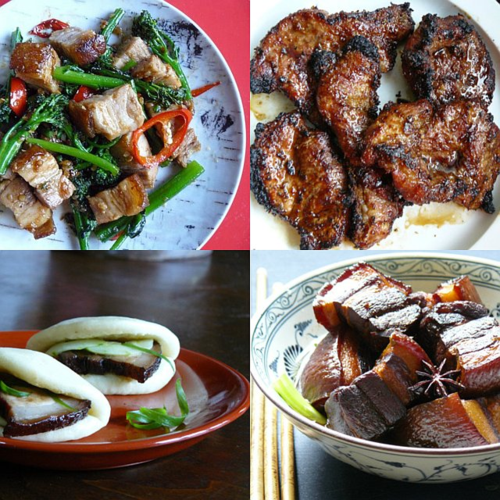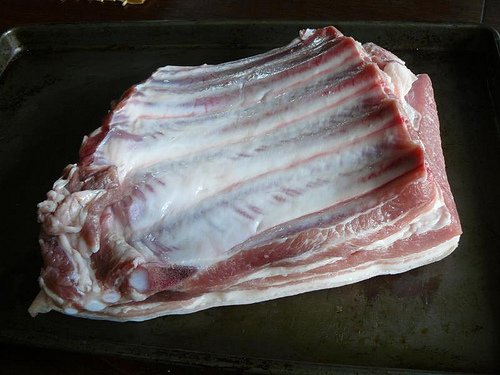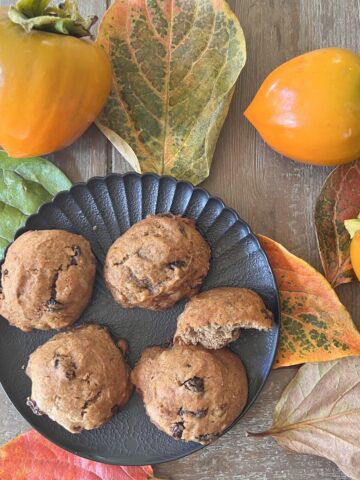My husband and I read the newspaper every day. Whenever we find a super interesting story, we read it aloud to each other. Sometimes the piece is funny, other times it contains incredible information. Last Saturday’s Wall Street Journal featured an opinion piece by Nina Teicholz, a researcher who has been investigating dietary fat and disease for years.
The crux of her work is that the public has been misled about saturated fats. The prevailing negative attitude toward saturated fats is not well reasoned, the result of “personal ambition, bad research, politics, and bias,” she argues. Her piece traces some of the history behind the anti-saturated fat movement.
Heart disease spiked in the 1950s and Americans wanted answers, she explains. Many people jumped on the bandwagon with a scientist named Ancel Keys whose “Seven Countries” landmark study of 13,000 men pointed to poor nutrition as the source of heart disease, not aging.
The research was flawed in many ways but that was not heavily discussed until 2002. For example, Keys’s star data points rested on a couple dozen men on the island of Crete who were eating very little because they were enduring particularly hard times and observing Lent. Statistically, that’s not a decent enough sample to survey and their circumstances didn’t accurately reflect their regular, day-to-day lives. (Where were the women in his research? I wondered.)

The American Heart Association (partly launched by Proctor and Gamble, the maker of Crisco) initially didn’t wholeheartedly subscribe to Keys’s hypothesis about the evils of saturated fat. In 1961, the ambitious scientist got on the AHA nutrition committee and persuaded the organization to his point of view. The USDA issued its verdict against saturated fat in 1980.
Interestingly, Tiecholz points out that despite studies totaling about a billion dollars, there’s been no conclusive evidence that having healthy heart hinges on maintaining a diet low in animal fat, eggs, cheese and butter. (The flip side is that no one has said that people should freely load up on saturated fats too.)
The unintended consequences of policies and attitudes against saturated fats include an increase in carbohydrate consumption by 25 percent since the early 1970s, says Tiecholz. Consumption of saturated fats decreased by about 11 percent, she noted. However, incidences of diabetes and obesity are up, which imply greater risks heart disease.
So what gives with America's unhealthy, imbalanced state? It’s murky and Tiecholz concludes that instead of blaming saturated fat for much of America’s health problems that we ought to look at other factors. Shunning fat is not the answer. She's trying to rock the boat and her article is worth a read for more detail.
My husband Rory and I stewed over the story while lunching on bagels, full-fat cream cheese, smoked salmon, and white wine. The medical and research community can come off as being so sure of their findings – and way too often the public kowtows.
Finishing his last bite, Rory said, “I’m tired of people telling us not to have fun. We all need to enjoy life. A drink and some rich food once in a while won’t kill you. All things in moderation like the Buddha said.”

Indeed. For decades the public has been led to believe that saturated fats were ultra bad, potential killer foods. Tiecholz, the author of a new book called The Big Fat Surprise: Why Butter, Meat and Cheese Belong in a Healthy Diet, brings together facts and ideas to poke holes in that notion. However, I’m not sure if she or anyone else has a concrete solution.
What I am sure of is that I’d rather have a single egg fried in butter than a big egg white omelet prepared with canola oil. Whole egg or low-cal mayo for banh mi? I’d rather slather on the former. When I chomp on crisp roast duck, I know that the next day, I’ll eat lighter and exercise more. Unless a recipe really warrants chicken breast, I’ll cook chicken thigh, thank you. Ditto for choosing pork shoulder over tenderloin. A few bites of pork belly in my vegetable-centric meals won’t hurt me either.
As a nurse said this to me years ago, “It’s not what you eat once in a while that matters, it’s what you eat every day.” We should make wise decisions for ourselves and be more skeptical of medical and research findings.
So let's celebrate a little and/or feel less guilt when we indulge. I’m a pork lover and find myself cooking with it more often than other meats. It’s versatile, affordable, and tasty. Below are ten porcine recipes from the archives. Use the search function to find more. And don’t forget the ribs from earlier this year too.
Got a take on this, experience or favorite fatty indulgence to share?
Deep-fried, stir-fried, pan-fried
- Old School Sweet and Sour Pork
- Cornmeal Crusted Pork Chops
- Stir-fried Green Garlic with Chinese Sweet Sausage
- Burmese Pork Belly, Pickled Mustard Greens and Tofu
- Thai Pork Belly with Garlic and Broccolini
Wrapped and/or Grilled
- Tofu Kimchi and Bacon Tacos
- Viet-Korean Grilled Pork Belly Lettuce Wraps
- Vietnamese Restaurant-Style Grilled Pork
Braised in a Bun (on Asian Dumpling Tips)

















